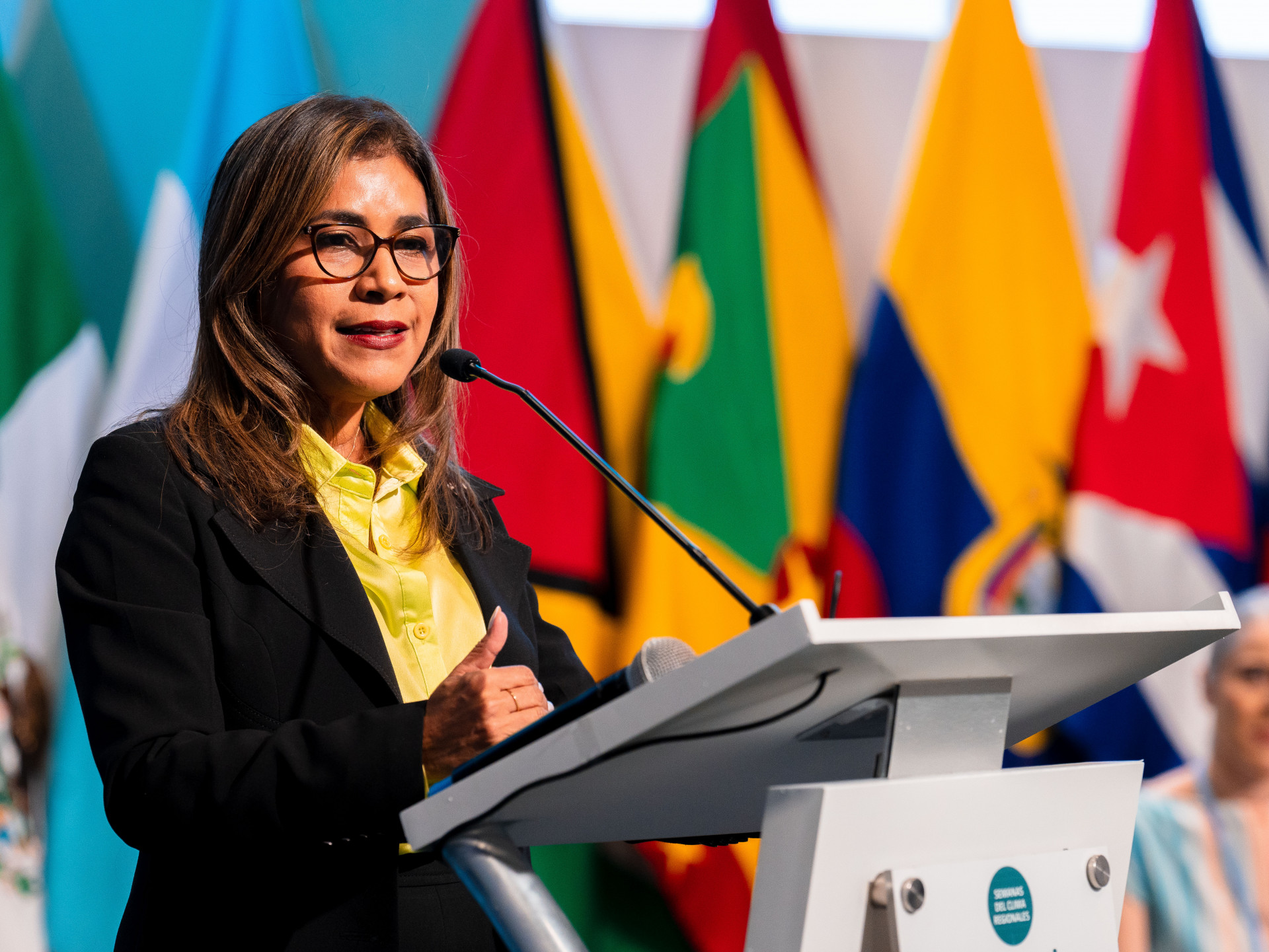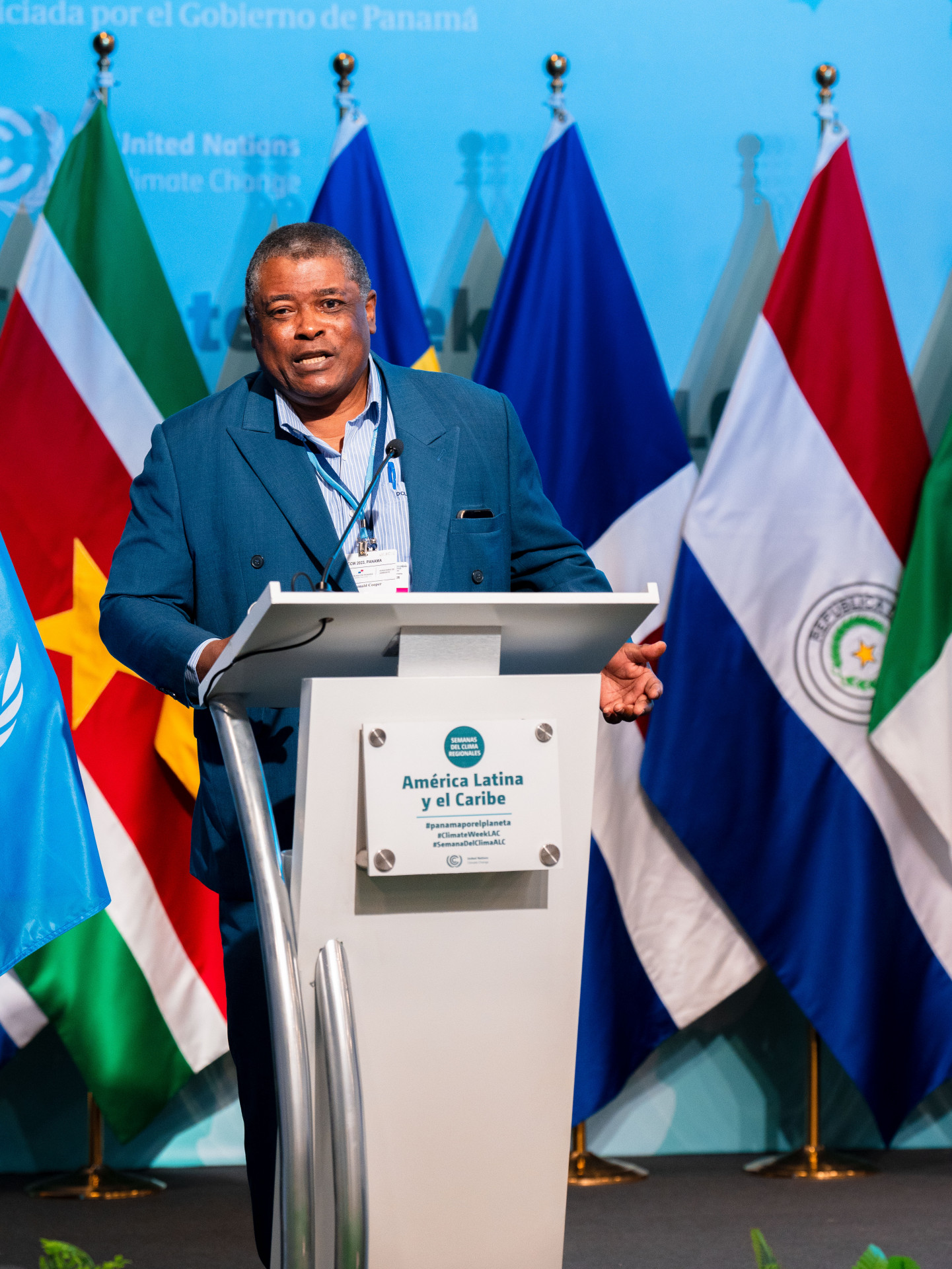UN Climate Change News, 10 November 2023 - During the Latin American and the Caribbean (LAC) Climate Week in October 2023, a Dialogue took place to promote implementation of the enhanced transparency framework (ETF) in the region. The dialogue provided an overview of international collaboration and support mechanisms available for countries in the region to meet reporting deadlines and requirements.
As COP28 approaches, countries are preparing their first-ever biennial transparency reports (BTRs) under the ETF, which are due latest by the end of 2024. These reports will help track progress of implementation and achievement of the Nationally Determined Contributions (NDCs) submitted by countries and will provide evidence for nations to strengthen their national plans and policies during the next round of NDCs by mid-2025.

"The ETF will provide countries with critical data, which will guide informed decision-making and help to understand the full extent of human activities' impact on climate change, and vice versa," said Diana Laguna, Panama Vice-Minister of Environment, at the opening of the two-day dialogue.
Laguna announced Panama's intention to subitits BTR in the first quarter of 2024 and called on LAC nations to strengthen capacities and knowledge, and reinforce cooperation towards comprehensive implementation of climate action in the region.
Donald Cooper, Transparency Division Director at UN Climate Change underscored the need to have clear data for reporting purposes but, more crucially, to make informed decisions that lead to genuine progress in each country.

Cooper encouraged countries to use the ETF as a mechanism to understand their specific needs and realities, highlighting that while the first BTRs might not be perfect, subsequent ones will improve as countries adapt and learn.
"No matter how good your first one is, your second one will be infinitely better because you will have figured out all the ways in which it works for you, and you will continue to get better," he added.
Henning Wuester, Director of the Initiative for Climate Action Transparency (ICAT), co-organiser of the dialogue with UN Climate Change, emphasized that transparency is key to advance NDC implementation and to bolster effective policy.
Wuester praised the LAC region for its leadership in tackling climate change and highlighted several countries' efforts, such as Panama's work on assessing climate-induced loss and damage, Costa Rica's systematic tracking of sustainable development impacts, and Colombia's focus on understanding contributions to climate action at the subnational level.
Driving Low-Emission, Resilient Development
The push for transparency in climate action is seen as a crucial driver for low-emission, resilient development.
Harry Vreuls, Chair of the Subsidiary Body for Scientific and Technological Advice, emphasized that transparency empowers countries to create more sustainable paths through data-driven planning, implementation and monitoring. Ana Graça, UN Resident Coordinator in Panama, highlighted the UN's readiness to collaborate closely for the ETF to improve reporting, promote multisector partnerships and facilitate collaborations that go beyond national borders.
Regional initiatives such as the Climate Action Transparency Hub for Central America and the Dominican Republic, and the Caribbean Measurement, Review and Verification (MRV) Hub aim to deepen collaboration, improve data management and reporting, and support smaller states in their institutional approaches to climate action.
Better Reporting for Better Action
Government officials from LAC countries stressed the critical role reliable data plays in monitoring climate progress and enabling national reporting.
Joyelle Clarke, Saint Kitts and Nevis' Vice-Minister for Sustainable Development, Environment and Climate Action highlighted her country's efforts to align climate resilience with the Sustainable Development Goals, noting challenges such as limited resources and lack of political will. Kenrick Williams, CEO in the Ministry of Sustainable Development, Climate Change and Disaster Risk Management of Belize hailed transparency as a commitment to future generations, showcasing sustainable practices and legislative measures implemented in his country. Moreover, Belize's Climate Ambassador Carlos Fuller highlighted how the country has used transparency data to inform and adjust national policies and ensure that sectors "do what needs to be done."
Jenny Mager, Head of the Climate Division at the Chilean Ministry of Environment explained how her country has included climate transparency into national law and stressed the need for sectoral collaboration. Kishan Kumarsingh, Head of Multilateral Environmental Agreements in Trinidad and Tobago noted that the transition from a voluntary to a mandatory MRV system was critical for the equitable enforcement of climate action. And Suriname's Senior Legal and Policy Advisor Ivette Patterzon emphasized the country's progress in managing environmental data with the creation of a National Environmental Information Network to support data-driven policies.
Policy and technical discussions showed the efforts being undertaken by countries to implement the ETF, as well as the continued need for capacity-building, financial support and cross-sectoral collaboration to enable countries to meet their ETF obligations and unlock its full potential.
See transparency-related events taking place at the Asia-Pacific Climate Week in Malaysia on 13-17 November.
More on the ETF and the #Together4Transparency initiative.






